- Learning time
- 20 minutes
- First play time
- 80 minutes
Letter Jam
Designed by: Ondra Skoupý
Letter Jam is a co-operative game where letters must be identified and words must be made – but you don’t know what your own word is.
At the start if the game, everyone secretly composes a five-letter word using the the letter cards, and then passes them, shuffled, face-down to their neighbour – the cards are then laid out in a row (still face-down!) and everyone puts their first letter into a stand: facing away from them, so everybody at the table can see all the letters apart from their own.
Now a discussion takes place as to who should give a clue – there’s no turn order here; players collectively decide who is best placed to do so, and take a clue-token from the supply.
The clue itself is a word: a word you can spell out using the other players’ letters, ideally as many as possible, although there are always six letters to choose from, as with less than six players there will be dummy hands to give you some options. There’s also a wildcard (*) that can be any letter at all, although again, you cannot say aloud what it represents in your word.
Let’s give an example. I obviously can’t use my own letter (- I don’t know what it is!) but looking around the table I can see the letters G, H, and your letter in front of the players and B and U in front of the dummy hands. I think the word BOUGH would be helpful, so using a set of numbered chips I spell out the word B?UGH; the ? here representing your letter. Everyone writes down what they can see, and via process of elimination, you can deduce your letter must be O. You make a note of it, lie that card flat, and put your next card in the stand – again, facing away from you.
Of course, there’s times where it will be far less obvious, but usually the clue-giving does at least narrow things down and subsequent clues will help identify a letter: in our example above, the player with the B letter would have seen ?OUGH and narrowed their letter down to B/C/D/L/R/T and a subsequent clue of TU??Y helps them work out it’s probably B. Players can even decide, having worked out a letter is one of two possibilities, to make a note of both and move on anyway. The goal is to help everybody identify all of their letters before the clues run out – there are a limited supply, although you can access extra clue tokens by using up all the cards in the dummy hands if you’re playing with fewer than six people.
When the clues run out, players work out what their word is and attempt to order their letter cards appropriately before the grand reveal: one by one letters are flipped over as players call out what they think it is! Ideally this is a spectacular affirmation of your word-deduction techniques, but it can also be the moment you realised what you thought was a K was actually an L, and your word is wrong! It’s worth noting though that as long as you have the correct letters any word using them is considered a victory – and getting the order wrong in the grand reveal doesn’t really matter either. There is a scoring system too, so for multiple attempts you can record your scores and try and do better. You can even try your hand at 6 letter words!
Joe says
Letter Jam is a very clever anagram-making cooperative game, which is always fun to play but doesn't seem to hit the table as often as some it's competitors. Best with the full six players, I would say; and a little bit of a bear to explain - but once you start playing it's pretty straightforward. You do need to ensure that the players enjoy forming words from random letters - if that doesn't appeal, it's not going to be a ton of fun.
The guru's verdict
-
Take That!
Take That!
None
-
Fidget Factor!
Fidget Factor!
None - everyone is involved throughout.
-
Brain Burn!
Brain Burn!
The rules are light, if a little unintuitive at first. The brain-burning is about working out the best clues, the most
-
Again Again!
Again Again!
The challenge is always the same, but the words can always change, and you can tailor the game for different ages and abilities - a 4-letter word for children, a 6-letter word for wordy adults...

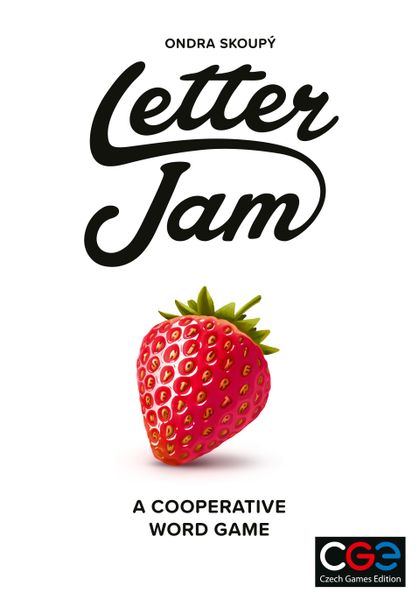
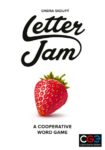
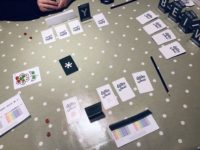
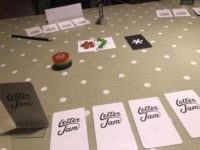
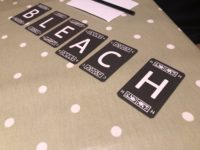
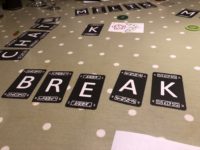


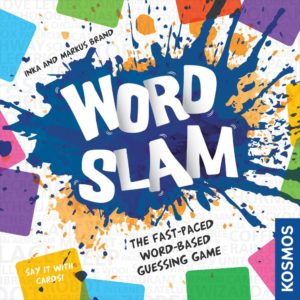
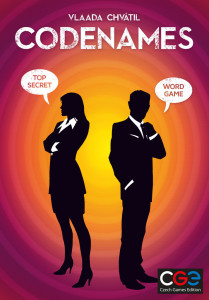
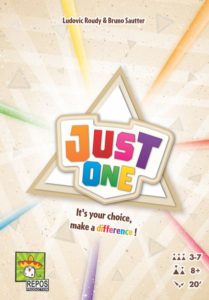
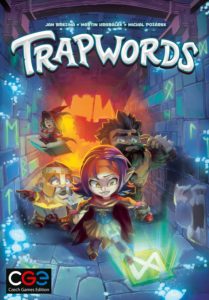
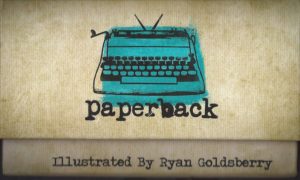
Sam says
I do like Letter Jam. It's not as instantly-playable as our perennial favourite Just One, and the fact the clues are about spelling rather than meaning mean it doesn't reach the delirious heights of another favourite, Decrypto. But if you like word games, this is a good one. Maybe even a pulchritudinous one.